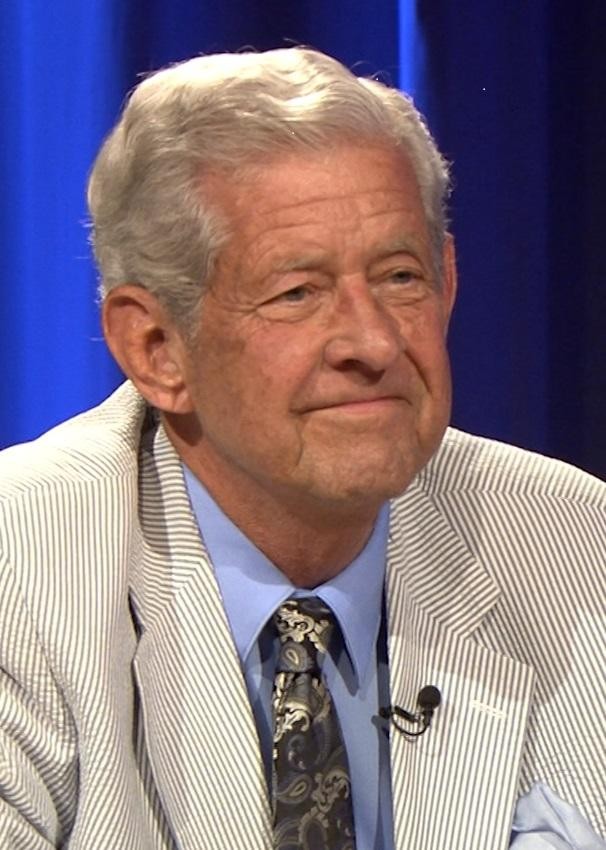
Memphis lost one of its finest citizens last week — Jim Eikner. Lawyer, onetime prosecutor, actor, singer, painter, wit, public speaker par excellence, he was, among many other things, the on-air presence and golden voice that sustained WKNO, Memphis’ public broadcasting station, for decades. He was a blend of dignity, service, and wit who, even before his ascension in the current year to the presidency of the Rotary Club of Memphis, was the embodiment of the club and its motto, Service Before Self. And no Memphis Rotarian can forget — or emulate — his erstwhile weekly news reviews that for years, faithful to Aristotle, always both amused and instructed.
Jim’s death was attributed to heart failure, though it is misleading to leave it at that, since his heart — in the metaphorical sense, anyhow — never failed us. Indeed, as we learned, even after he was disconnected medically from his artificial life supports, his heart kept beating for some time before subsiding into its final, reluctant rest, as if to remind us that he intended to remain with us in spirit.
We learned upon his death that Jim was 82, and, as we thought about that, it certainly made sense. He had the gravitas that comes with such age. But in another sense, he was still Jimmy Eikner of Messick High School, a youth who was equal parts sober-sided and impish. He stayed that way throughout his time at Southwestern at Memphis (now Rhodes College) and at the University of Tennessee Law School and throughout his adult career as a full-time Renaissance man.
It was ironic that Jim Eikner should leave us on the very cusp of spring— he whose wardrobe and manner always distilled the essence of that season. But it was appropriate that, after one of the bleakest local winters on record, the weather should relent this week after his death, enough so to allow several of us to fetch our own cords and seersuckers from their hiding places, in his honor.
One of Jim’s memorable roles as an actor was that of Norman in On Golden Pond, the octogenarian who in the course of the play comes to terms with the generations that are preparing to succeed him. Eikner himself never had to play catch-up with anybody of any era. He was a man for all times and an inspiration to them, as well, and will not stop being that.
The one thing we will miss the most about Jim Eikner is that voice of his, something that he himself was so dismissive about, referring to it as mere nasality, but which we knew to be an uncommonly mellow instrument, whose silky baritone expressed all the tones and nuances of life like nobody else’s. But it will still be there, in the mind’s ear, to fill such uncomfortable silences as come along.
These remarks were given at Tuesday’s Downtown Rotary Club by Jackson Baker.